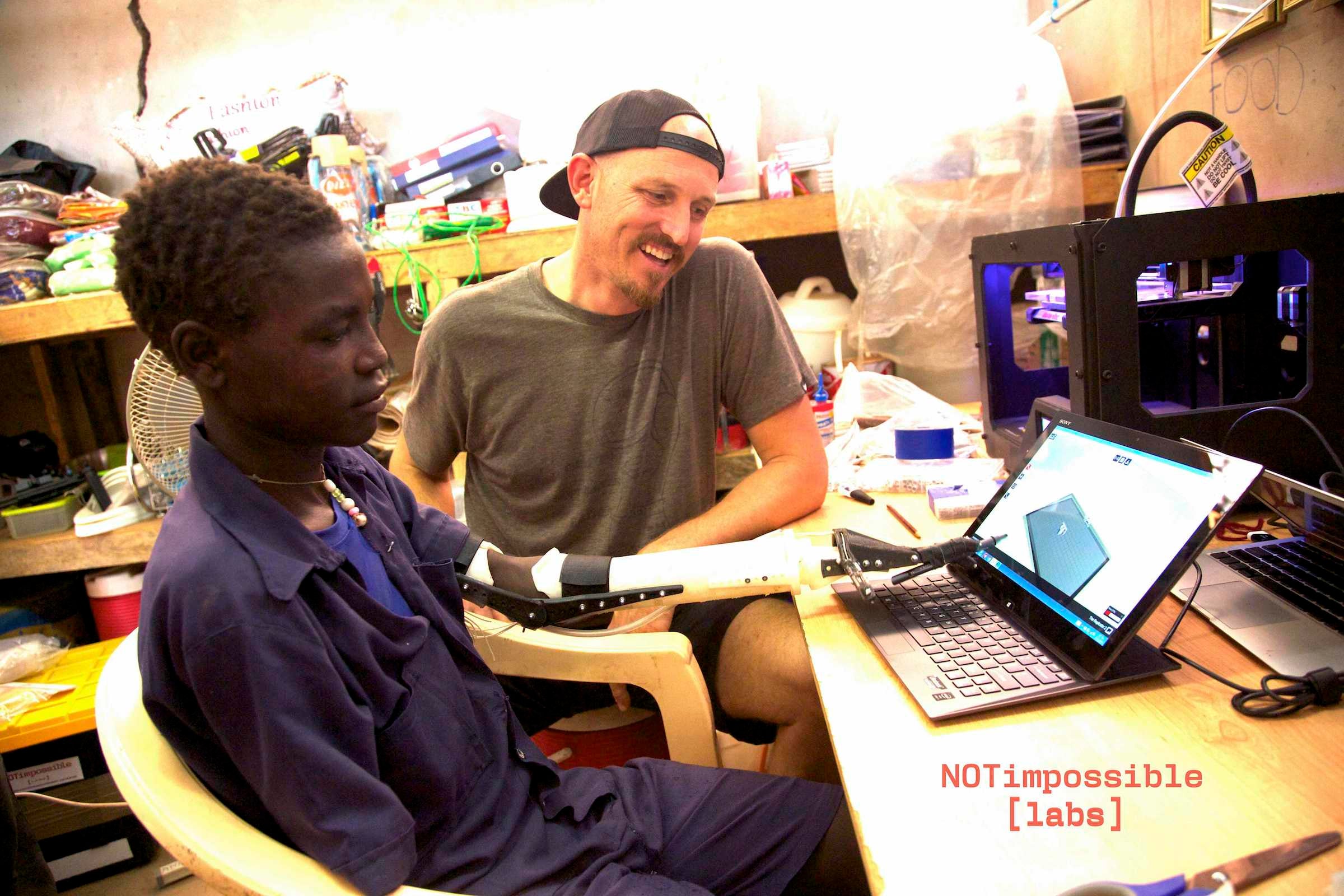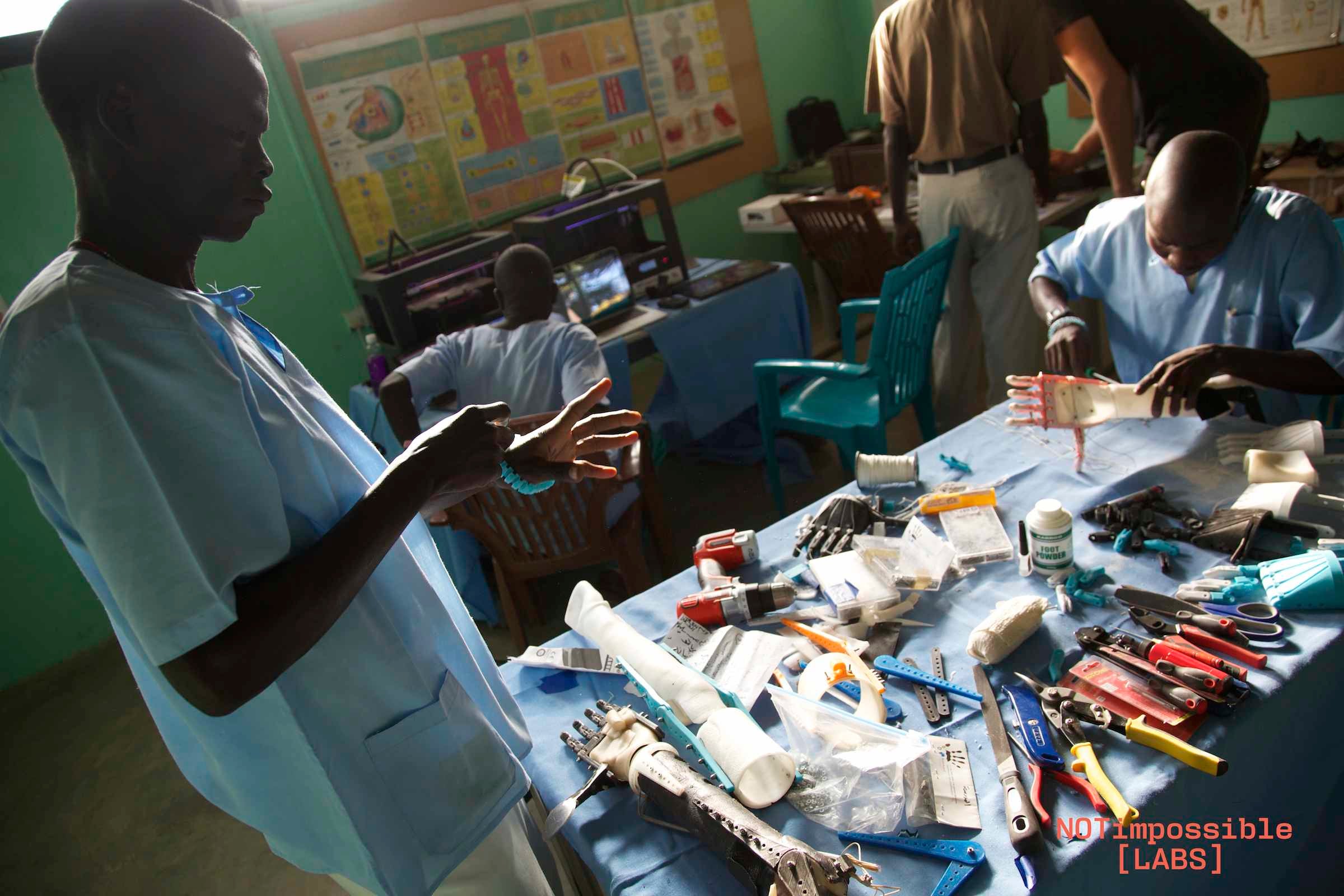3D-printed prosthetics: How a $100 arm is giving hope to Sudan's 50,000 war amputees
'Project Daniel' started with the story of one boy, but this new initiative is now providing low-cost prosthetics in a war-torn nation

Your support helps us to tell the story
From reproductive rights to climate change to Big Tech, The Independent is on the ground when the story is developing. Whether it's investigating the financials of Elon Musk's pro-Trump PAC or producing our latest documentary, 'The A Word', which shines a light on the American women fighting for reproductive rights, we know how important it is to parse out the facts from the messaging.
At such a critical moment in US history, we need reporters on the ground. Your donation allows us to keep sending journalists to speak to both sides of the story.
The Independent is trusted by Americans across the entire political spectrum. And unlike many other quality news outlets, we choose not to lock Americans out of our reporting and analysis with paywalls. We believe quality journalism should be available to everyone, paid for by those who can afford it.
Your support makes all the difference.To many people 3D printing can seem trivial or a bit silly, but for some this technology has the potential to transform lives. In war-torn Sudan, 3D printers have been doing exactly that: providing low-cost prosthetics to the victims of bombing attacks.
An initiative named ‘Project Daniel’ is responsible the work. It was started by Mick Ebeling, an American entrepreneur and founder of Californian non-profit Not Impossible, who heard the story of a boy named Daniel Omar.
In March 2012 the 14-year-old Omar was looking after his family’s cows in Sudan’s Nuba Mountains when bombs dropped by government planes blew off both of his hands and parts of his arms. When Omar told his story to Time magazine he said that he would rather have died.
“Without hands, I can’t do anything,” Omar told reporters. “I can’t even fight. I’m going to make such hard work for my family in the future. If I could have died, I would have.”
When Ebeling read the story he was so moved that he decided he had to help, travelling to Sudan in November 2013 with financial help from Intel and Precipart.
"I came to Sudan with 3D printers, laptops, spools of plastic and the goal to print Daniel an arm,” says Ebeling in a video (bottom) describing Omar’s story and the work of Project Daniel.

Ebeling has quite a track record when it comes to creating innovative solutions to healthcare problems. His startup previously found success with EyeWriter – a crowd-funded eye tracking system that was originally designed to help a paralysed graffiti artist named Temp to paint again.
For Project Daniel though Ebeling need a different skill-set and recruited a number of experts in the field. These included Richard van As, a passionate proponent of open-source technology and 3D printing who lost four fingers on his right hand in a woodworking accident.
Van As realised that most prosthetic technology was “excessively expensive” because of the patents held by large corporations, and instead created his own mechanical solution named Robohand.
Whilst state-of-the-art myoelectric prosthetics cost tens of thousands of dollars, the price for 3D-printing a Robohand can be as little as $100. The technology may not be cutting edge, but restoring even a small amount of functionality to an amputee can be utterly life-changing.
Using van As’s expertise and with help from American doctor Tom Catena (a surgeon who works as the only qualified amputator in the area) Ebeling was able to 3D-print a prosthetic limb for Omar, allowing the 16-year-old to feed himself for the first time in two years.

"Getting Daniel to feed himself was a highlight that was right up there with watching my kids being born,” Ebeling told The Guardian.
However, Project Daniel has been about helping more than one individual. By leaving behind a pair of 3D printers and training locals to use them, Ebeling has created the world’s first 3D-printing prosthetics lab, which now creates a prosthetic every week for the victims of South Sudan’s war.
"We're hopeful that other children and adults in other regions of Africa, as well as other continents around the globe, will utilise the power of this new technology for similar beginnings," said Ebeling.
We believe Daniel's story will ignite a global campaign. The sharing of the prostheses' specifications, which Not Impossible will provide free and open source, will enable any person in need, anywhere on the planet, to use technology for its best purpose: restoring humanity."
Join our commenting forum
Join thought-provoking conversations, follow other Independent readers and see their replies
Comments